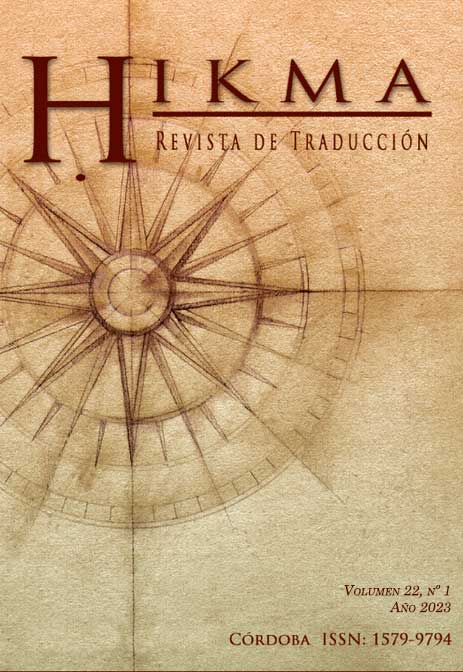Translation Competence of Graduates of Master's Degrees in Translation and Interpreting A Qualitative Study on Teachers’ Perceptions
Main Article Content
Abstract
The suitability of training content is one of the cornerstones of curriculum design, especially when this suitability is continually challenged by the reality of a changing and extremely competitive market. This paper presents the results of an exploratory qualitative study on the perception of teachers of several Master's degree programmes in Translation and Interpreting (T&I) in Spain regarding the acquisition of different competences by graduates of these programmes in order to highlight possible shortcomings and establish the corresponding relationship with the contents and methodologies taught in the different training programmes. The results indicate that this perception is positive across the board, especially in those competences related to specialisation in a specific field. The most relevant conclusions of this research point to the disengagement of teachers from professional activity as one of the main factors affecting the lack of knowledge of the expectations of the market reality on the part of the academic sphere and is, therefore, one of the elements that must be taken into account when bridging the gap between the academic sphere and the labour market.
Downloads
Article Details

This work is licensed under a Creative Commons Attribution-NonCommercial-ShareAlike 4.0 International License.
Authors who publish with this journal agree to the following terms:
1. Authors retain copyright and grant the journal right of first publication with the work simultaneously licensed under a Creative Commons Attribution License that allows others to share the work with an acknowledgement of the work's authorship and initial publication in this journal.
2. Authors are able to enter into separate, additional contractual arrangements for the non-exclusive distribution of the journal's published version of the work (e.g., post it to an institutional repository or publish it in a book), with an acknowledgement of its initial publication in this journal.
3. Authors are permitted and encouraged to post their work online (e.g., in institutional repositories or on their website) prior to and during the submission process, as it can lead to productive exchanges, as well as earlier and greater citation of published work (See The Effect of Open Access).

